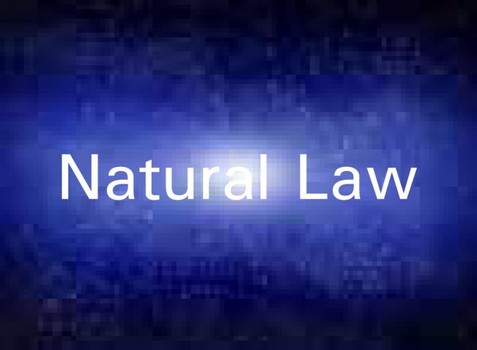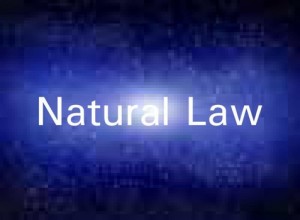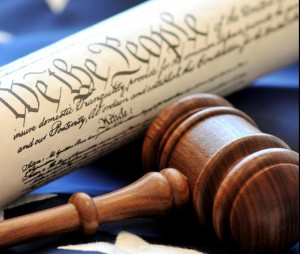In this blog post, Disha Pareek, a student of a student of Rajiv Gandhi National University of Law, Punjab, writes about the revival of natural law after the end of both the World Wars. In this blog post, she also discusses the contribution made to the revival of the natural law theory by its two main proponents.
Natural law is the body of universal moral principles which has laid down the ethical and moral guidelines to regulate human conduct. It is also known as the Law of Nature. Natural law exists, even when it is not recognized by the government or state. Natural law theory has influenced the enactment of common law in England. There are various proponents of the natural law like Aristotle, Plato, Hobbes, Cicero, etc.
Revival of Natural Law
Towards the end of 19th century the ‘natural law’ theories revived due to many reasons, some of which are:
- As a reaction against the 19th-century legal theories which exaggerated the importance of positive law (law as it is) which caused the need for its revival
- The scientists themselves have accepted that scientific study is based on certain pre-supposed notions and in contrast to the concept of time and space the changes in the scientific investigation also became possible.
- It was realized that abstract or vague thinking was not completely futile, as they became guidelines or a code of conduct.
- With the pace of new emerging and increasing problems, positivists realized its helplessness.
- The result of materialism on the society and altered socio-political conditions compelled the 20th- century legal thinkers to look for some value-oriented ideology which could help to prevent moral degradation of people in general.
- Both the world wars had created havoc in the world and morals, and principles had no place in the world. And it was realized that it is the need of the hour to formulate such laws which should be based on natural law principles.
UDHR and Natural Law
The principles of Universal Declaration of Human Rights (UDHR) are the perfect example to show the reason why natural law is important, and it exists today. The United Nations General Assembly adopted UDHR on 10th December 1948. It came in the wake of the disastrous results of both the World Wars which took millions of lives and the world incurred a huge economic loss as well. In the 19th century, the positive law became prominent but after a short time, it was felt that natural law was equally important.
When the war was going on, they adopted some of the basic human rights like freedom of religion, speech, etc. The charter of UDHR committed all member states to promote universal respect for one and all without any distinction of race, sex, language or religion.
Proponents of Natural Law
In regard to the revival of the natural law theory, the main contribution has been made by John M Finnis and Lon Fuller.
John Finnis
- He defines law as “primarily the rules made by regulative legal rules by an effective authority for a complete community.” He has a very different perspective about natural law. He considers natural law neither in the relation to human nature or metaphysics.
The Supreme Court of United States in the case of Lawrence v Texas[1] has addressed the issue of morality and the need for natural law. Finnis has tried to restate and provide modern analysis and interpretation to natural law. He also disposes of two important misconceptions about the theory of natural law
- He denies the fact that natural law is derived from objectivity and a set pattern of behaviour but instead asserts that it is an ascertainable from inside knowledge of innate motivation which is different in different persons
- Natural law does not claim view that law is not law if it contradicts morality.
He has also laid down seven basic principles of human nature:
- Life
- Knowledge
- Play
- Aesthetic pleasure
- Sociability
- Practical reasonableness
- Religion
Lon Fuller
He rejects the notion of natural law as a body of authoritative higher law, and that a man’s conduct should be measured in light of these principles. No natural law theory can be accepted which attempts to lay down in advance an eternal, unchanging code of nature. Rather, he suggests that a new name is suggested for an old phenomenon. He suggests the term ‘Eunomics’ which he defines as “the theory or study of good order and workable arrangement”. With this he warns that Eunomics must not attempt any orthodoxy or doctrine of binding ultimate ends.
According to him, the integrity of the laws is determined primarily by the process which it uses to accomplish its goals. The morality that makes law possible requires completion of 6 conditions:
- There must be formation of general rules to guide actions
- These rules framed must be made known to public
- The rules should be prospective in nature, meaning thereby they should suit to future and not regressive
- They should be framed in such a way that they are comprehensive and easily understandable
- These should be consistent with other rules
- They should be stable in a reasonable way, that is should not be changed too frequently.
Indian Constitution and Natural Law
Indian Constitution is based on the pillars of Natural Justice, which is a revised version of natural law. Although the Constitution does not specifically talk about the principle of natural justice/law, the provisions are embodied in this sense. Starting from the Preamble, the words Justice inclusive of social, economic and political and equality of status and though, etc. prove that natural law principles are there in the Indian Constitution.
Apart from the Preamble, Article 14 ensures equality before the law to all the citizens without any discrimination of any sort. Then there is an Article 21which guarantee Right to Life and Liberty, which is also the most comprehensive article of the whole constitution is based on the premises of natural justice. Article 14, 19 and 21 which is also the golden triangle of the constitution has drawn inspiration from natural law.
Prominent Indian case-laws
In Air India v. Nargis Mirza[2], the Supreme Court had struck down the Air India and Indian Airlines regulations on retirement and pregnancy bar on the services of air hostesses as unconstitutional on the ground that regulations were arbitrary and unreasonable under Article 14 of the Constitution.
In Maneka Gandhi v Union of India[3], the meaning of life and personal liberty under Article 21 came up for consideration and the Supreme Court held that the law established by the state should be just, fair and reasonable.
In A.D.M. Jabalpur v Shivakant Shukla[4], this was a case of Habeas Corpus petition. This was in the context of suspension of enforcement of Articles 14, 21 and 22 during the time of emergency. Court held that even in the absence of Article 21, the right to life and liberty of a person cannot be taken away.
Conclusion
The concept of natural law has taken several forms. The idea began with ancient Greek’s conception of a universe that is governed by an unchanging, eternal law; the natural law had its importance in every period. Even when there was degradation of natural law in the 19th century, it was realized that natural law and not positivism is the panacea for all the problems.
Later, after the drastic consequences of the World Wars, there was the setting up of a natural law school. Post World War situation was the reason for the introduction of UDHR. There have been several theories on natural law, like some scholars believed that morality is essential for existence of a person in the society, while others gave it different names like Eunomics or natural justice (let the other party be heard or nobody shall be a judge in his cause)
But an excess of everything is dangerous; even the natural law has committed excesses. The abstract principles of the natural law led to the development of some of the laws which were in conflict with different communities or sections of the society. Therefore, any law should be based on the mixture of natural law principles of morality and justice, and the positivistic principle of some fixed proposition, which is the law as it is and even a cue can be taken from the sociological or historical school.
Footnotes:
[1] 539 U.S. 558 (2003)
[2] 1981 AIR 1829
[3] 1978 AIR 597
[4] 1976 AIR 1207
 Serato DJ Crack 2025Serato DJ PRO Crack
Serato DJ Crack 2025Serato DJ PRO Crack













 Allow notifications
Allow notifications


